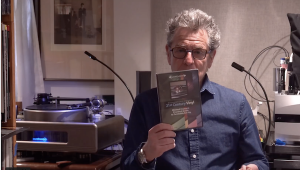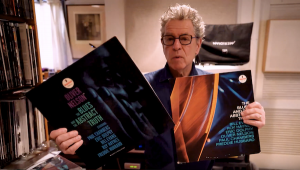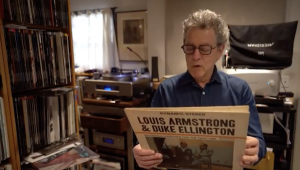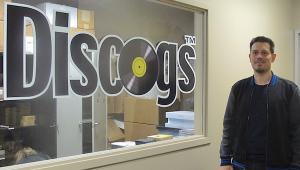Why Sixties British Rock Is Still the Benchmark
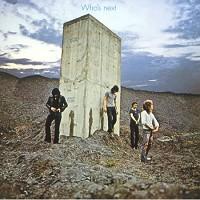
… or, why does it make sense for musicangle and other perceptive writers and sites to still be discussing and rating this stuff 40 years later?
Musicangle recently reviewed the Classic Records reissues of The Who Sell Out, Direct Hits, and Who’s Next, as well as posting a Tracking Angle discussion of the Stones’ Get Your Ya-Yas Out, reviewing recent CD remasterings of Stones albums like Aftermath, and generally following any and all interesting 60s-Brit reissues from the Beatles to the Zombies.Why do so, given that this stuff first came out four-odd decades ago? Why are they still remastering, repackaging and reissuing it, and why do we care? Below, McGill proves to McGill (and maybe to you) that the best of this music is still the Gold Standard, which the best rock artists since then have aspired to meet (or even top), though few if any have done so! So without further ado…
Mike McGill: Dude, aren’t you playing the stick-in-the-mud here? That stuff is great, but don’t you get sick of it?
Michael C. McGill: Of course I do. I long for the new Rubber Soul or Village Green to come along and relegate those classics (and “classic” is a lame term for a creative and rebellious genre anyway, but let it go) to historical curiosities, worthy of respect but of less-frequent listening. (That’s the way I feel about the best 50s rock, for the most part.) Unfortunately, it’s a tough task. Some unknown ratio of tons of talent, open creative vibes in the air (on the part of both artists and audience), and good old tube/analog technology being used (and abused!) to its utmost… all this led to an astonishing outpouring of great music in the Sixties. (And especially between, say, ’63 and ’73. We’ll cheat a bit and artificially call that a ‘decade;’ but not to cheat too much, we’ll focus on ’64 to ’69, while allowing the other stuff in here and there.)
MM: But isn’t some of that unfair? Aren’t you romanticizing that music, bathing it in a glow of nostalgia?
MCM: No. Come on. You know as well as I do that that stuff blows away most of what comes out now, even the best of the new; and that that applies, to a greater or lesser degree, to any period you can pick out in the last 30-odd years. Or shall we listen to some Coldplay or Spoon back to back with—
MM: Okay, okay. But my second objection is this: even granting you the incredible quality of that stuff, doesn’t it have an unfair advantage over later stuff, in that it’s so respected that successors are forced to come to terms with it, but at the same time, the best has already been said in those genres?
MCM: What a cop-out. No one ‘has to’ work in any genre of art; if that stuff is so good that it inspires people to (hopefully) take off from its achievements, or even (hopefully not too much) flat-out copy it, then that’s simply more evidence of its power and beauty. The Beatles had their influences too—you can hear hints of Buddy Holly and the Everly Brothers—but they simply took it so much further that, as hard as objectivity is in the arts, you can pretty much get a consensus that it’s ‘better.’ There’s just more there to enjoy. It’s broader and it’s deeper at the same time. The same applies to the Stones and their slightly rawer influences like Chuck Berry and the various blues, soul and country artists they loved. Now, you current artists (as Alec Baldwin says in Glengarry Glen Ross), go and do likewise.
MM: So you don’t have much respect for the artists that most slavishly copy your old favorites?
MCM: I don’t have much respect for anybody who slavishly copies anything, unless it’s safety rules for electrical wiring or skydiving. I’ve certainly gotten my share of guilty pleasure over the years from everybody from Badfinger to Teenage Fanclub to (sorry, it’s true) Oasis, but the closer you sound to your idols, the tougher it is to make a real difference, leave a legacy, be influential, whatever you want to call it.
MM: But maybe those artists don’t have such lofty goals. Maybe they’re happy to write a few good-to-great songs and have a career doing something they love.
MCM: Fine, let ‘em go for it. I’m a capitalist: more power to ‘em. Just don’t call them The New Beatles in the pop (especially British) press, without expecting some bile from this direction. Oh, and maybe they should call themselves ‘craftsmen’ or something rather than ‘artists.’
MM: Come on—I’ve seen you, in 1 A.M. wine-stoked musical bliss, declaring “Baby Blue” the perfect pop song; or picking up your guitar and belting out “Wonderwall” with C.W. and M.R. with as much or more joy than when you play “I’m Looking Through You” or “Paint It Black.”
MCM: Of course you have, and before you say it, I gave the wonderful-but-derivative Libertines a 10 in musicangle a few months ago, and don’t regret it at all. I’m a fan; I’m very right-brained; I’m just as susceptible to pure shallow decadent pleasure (and occasionally even to cheese!) as the next guy (well, almost). And all that proves is that my analytical mood isn’t 24/7, not that it’s not right on when I’m in it.
MM: What about REM and the Replacements and the Smiths? Bit more originality there, and more seriousness of purpose.
MCM: If seriousness of purpose were the criterion, ELP and Yes would be part of this discussion (MM winces). I like all three of the bands you named. REM has given me tons of pleasure, and I’d at least consider both Murmur and Life’s Rich Pageant for my Desert Island Discs. But their stuff is inconsistent, the rhythm section (especially Mills) could kick more ass, and most importantly, Michael Stipe is a cheap poseur and a cheater as far as making a fetish of not even enunciating his make-no-sense-anyway lyrics on their better, earlier stuff. Even if you can stomach all his PETA and Natalie Merchant nonsense, the guy has no sense of humor.
The Smiths do, and their best stuff has a refreshing approach, and if Johnny Marr delivers no more pure pleasure than Pete Buck with his Byrdsy jangle, he does more original things with it, straying commendably further from his models. And I love Morrissey. Many hate him, but many hated Jagger and Johansen and Cobain as well—sometimes you make enemies being a charismatic rock frontman (hell, I’m no rap fan but you could throw Eminem in there too). The Smiths are wonderful; they just don’t have enough great songs or great albums for me to put them at the very top. Marr takes chances with weird chord progressions, and all are interesting but only some of them work. And Morrissey is a serviceable but rarely a great melodist. As for the Replacements, I never got what all the fuss was about. They’re my best friend’s favorite band or close to it, so I’ve heard them in all settings, all pressings, all moods—I even saw ‘em live. Sorry. Good but not great. Hell-raising rock and roll attitude, funny and sometimes-moving lyrics, creditable guitar crunch… the songs just ain’t there. (Ironically, I think they’re getting there on the later Don’t Tell a Soul and the solo Eventually, which Mat fanatics decry as lame! Oh well, I also think Strangeways Here We Come is probably the best non-anthology Smiths album. They all hate me…) Also, the Replacements SOUND God-awful. That tinny crappy 80s coke-production, with the wrong kind of thin transistory distortion on the guitars… they make the far-from-ideal Smiths recordings sound like models of analog warmth!
MM: Okay, okay, so that stuff may not quite rank. But surely you wouldn’t give the back of your hand to the late 70s greats? What about the Pistols and Clash and Ramones, and for that matter the New York Dolls?
MCM: No backhand here. Those guys are great, as are bits of Blondie, Joe Jackson, Graham Parker and Gen X, not to mention the scattered Elvis Costello masterpieces that are occasionally worth picking out from his too-frequent wordy pretentious dreck. (Ducks thrown shoe—MM is a big Elvis Costello fan.) And I was there, sneaking into clubs underage, so if nostalgia and positive prejudice creep in anywhere for me, it oughtta be there. And the stuff was an unbelievable breath of fresh air in its time, and a lot of it holds up.
Still, I burned a punk CD to take to work, and let me tell you, it was the absolute cream of the crop. And some of it sounded great, but one of my friends, a girl in her mid-20s with a good ear and a good musical brain, was saying “what is THIS?” and didn’t like it at all. And I listened with fresh ears, and you know what? Some of the stuff justifies its harsh sound with its brilliant content, and a lot of it just doesn’t. In particular, the first Clash album just is not the timeless classic it seemed at the time. Not for frequent listening, anyway. It sure had a good influence. But listen to the primitive but delicious twin-guitar assault on, say, “Nineteenth Nervous Breakdown” or “Get Off of My Cloud,” and then listen to the wall-of-mud on “I’m So Bored With the USA” or “I Fought the Law.” The Clash get away with it for sure, but it just should be more listenable, especially since it’s ten or twelve years AFTER the pair of Stones songs I’m comparing it to!
Aside from London Calling, which is perfect, and a few scattered hard rockers, the best Clash now seems to me to be the reggae stuff. They were really inventing a new sound on “White Man in Hammersmith Palais” and their covers of “Police and Thieves” and “Pressure Drop” etc., Anglicizing that stuff as charmingly and effectively as the Beatles did “Please Mr. Postman” or the Stones “It’s All Over Now,” keeping the power and adding hooks, and I love it. Joe Jackson did much-lower-octane but creditable explorations of reggae and “world” music like a punk Paul Simon, somehow ending up with the excellent but not-really-relevant-to-this-discussion Night and Day.
The Dolls are a special case. They had it all – songwriting, crunch, lyrics, attitude, imagination – and both of their albums are certainly in my Top 100. They’re always exciting and never boring, and they know how to say it and get out. They just didn’t last long enough. Two albums doesn’t put you in the pantheon. [Late-breaking: they have a new album out, and the one song I heard rocked.] Very high honorable mention. Also, the Dolls had humor, which is an easy-to-overlook attribute in the best rock. I’m actually not sure why it’s so important, to tell you the truth, but I know that it is. Humanizes all that power, or something. “We take our music seriously, but not ourselves.” Nirvana had it; they’re still incredible all these years later. The Dolls caveats apply: not enough great material, but certainly top tier, especially Nevermind and Unplugged.
And before you mention Led Zep, of course they’re the best when you’re in “that” mood (hell, so are Black Sabbath), but they have NO sense of humor (neither does Black Sabbath), and the lyrics are sub-par compared to the other bands we’re discussing (so are Black Sabbath’s). (No, I’m not saying Sab are as good as Zep!) In fact, it’s probably that lack of humor that makes me occasionally prefer Aerosmith to Led Zep for my fix of 70s hard rock/metal. (MM rolls eyes) I know, Zep were a bigger talent for sure. And lately I love “Battle of Evermore” and “Gallows Pole” and some of that odd Physical Graffitti stuff more than ever. But still, Beatles/Stones/Who level? No.
MM: Interesting, but we were still back in anarchy-land—
MCM: Oh, right! The Ramones and the Pistols’ hard stuff (that is, all of their stuff!) actually holds up better than 80% of the Clash’s, though the Clash may be the greatest band of the three. Primacy of production and sound even in a supposedly raw-and-crunchy style of music-- oy vey, what a rusty cage we weave! And while the Pistols and Ramones are fantastic when you’re in the right mood, the Beatles take you from the balls-to-the-wall energy of “It Won’t Be Long” to the sweet harmonies and creative beat of “All I’ve Got to Do” (and not even on their best album), while the Ramones (on their best) can follow “Teenage Lobotomy” with nothing better than “Do You Want to Dance?”
MM (looking a little frustrated): Well, speaking of reggae, blues and assorted roots music, what about it? All this stuff originally derives largely from black music if you go back far enough. Don’t soul, groove and funk artists place in your pantheon?
MCM: You know they do. A bigger mid-period Stevie Wonder fanatic you will not find, and the same applies to early-to-mid-70s Al Green. I’d put that stuff roughly up there with the very best of the aforementioned punks. Innervisions and maybe Fulfillingness’s First Finale are at least real close (and maybe 100%) musically as good as Abbey Road or Let It Bleed. Of course it’s a bit apples-and-oranges because of the genre-crossing, but hell, Abbey Road might even sound more like Innervisions than either one sounds like Let It Bleed anyway. Thing is, Stevie’s lyrics are up and down (though certainly better than my #1 guilty soul pleasure, Earth Wind and Fire!), and his great period didn’t go on quite as long, and you get the one-man-genius thing rather than the added thrill of actually hearing a group collaborative feel (and often more than one lead singer) with our lead Brit artists… and, getting all critical and geeky and away from the album-as-listening-experience, Stevie’s influence was (regrettably) not as great for a long time—did he simply intimidate the rest of the soul (and broader) music world, or was his talent too individual and weird to copy-- up until the mid-90s, when first Jamiroquai (derivatably but enjoyably) and then loads of new-soul and hip-hop artists (more creatively) began to show the Stevie imprint. About time, too.
Al Green didn’t write much, though his best records as records are pretty damn perfect-- sensual, intelligent, melodic; smooth if that’s what you’re listening for, but with a funky bottom underneath—you can reach down with your spoon (no, use your hands) and scoop up a rich chocolate helping of thick sophisticated bass and drum deliciousness whenever you want. The earlier soul and blues artists, the ones who originally influenced the Brits, are of course worthy of massive respect-- that goes wirthout saying-- but to this 2007 listener, they suffer from the same problem as the 50s rockers. Maybe I’m shallow, but there’s just not enough going on. To a really schooled blues fanatic, I recognize that there are unbelievable nuances in Robert Johnson’s playing and singing, ones I’ll never know. And, hey, every middle-class home had a piano in it in 1900, and somebody at home could play, and you’d sit around with the scores of great works and enjoy them that way. And I might mourn the passing of all these things. But I’m still not likely to put on a Robert Johnson record when Sgt. Pepper is available. Clapton always does, and look what happened to him.
MM (sarcastically): Oh that’s right, excuse me: you disdain Clapton. Songwriting is All, Virtuosity Nothing.
MCM: Didn’t say that, though my highest praise is reserved for instrumentalists (and singers) who perform “for the song” rather than to show off… or at worst some of both! Clapton is fine when he (long ago) cuts loose. For many years now he’s been James Taylor with blues-purist pretensions; but that “Sunshine Of Your Love” solo sounds like Hendrix, I’ll give him that!
MM: Hey, speaking of Hendrix—
MCM: Speaking of Hendrix, he’s a major demi-god. Best rock guitarist ever, fine singer for his material, and a wonderful writer when he bothers. Wonder if it’s totally a coincidence that my fave stuff of his comes out of his “British” period (recently lived there, English sidemen)-- the short songs and disciplined creativity of the first two albums, especially Are You Experienced? What a magical fusion of flowery psychedelia and luscious soul/blues instrumental chops. And I put “soul” first there for a reason: Hendrix’s touring-soul-band roots are my kinda roots, and they’re one reason why his guitar work is so funky and danceable compared to the multitude of more purely “blues”-based guitar virtuosos. Hendrix’s guitar laughs more than it cries, though it does do both, and roars as well!
And speaking once again of soul music: of course some of the Memphis and Motown stuff of the mid-to-late 60s ranks with anything anywhere. “Ain’t No Mountain High Enough,” “Respect,” “You Keep Me Hangin’ On,” “Reach Out I’ll Be There,” “When Something Is Wrong With My Baby,” loads of others: no discussion needed. But it was a singles, rather than an album genre: great albums, and hence great big long moving listening experiences, are few. Even most of the best-ofs have some formulaic, dated or cutesy stuff, filler that might work fine at a party but doesn’t hold up for direct listening.
MM: Okay, but now that we’re in America, what about the best American album artists from the same period? What happened to Creedence and Neil Young and the Velvets and, oh yeah, that guy Bob Dylan in your little formulation?
MCM (chuckles): Ah, now you’ve finally put a serious challenge in front of me-- good for you.
CCR are wonderful when you’re in that mood, a la Pistols or Ramones above (not the same mood, of course!). They’re just not quite wide-ranging enough, put up against the great Brits. Though Creedence aren’t as ‘samey’ as some of my friends think-- they do have that nice Neil Young/Brian Wilson quality of seeming to sum up loads of Americana in their best stuff, a sort of timeless feel, a ‘folk’ element… by which I don’t mean Indigo Girl strumming, but rather a simple honesty of melody and an unforced rawness of performance.
MM: Hey, speaking of Brian Wilson—
MCM (eyebrow raised): Please. Brilliant at his best-- I love Smile too-- but doesn’t rock, and the Beach Boys’ lyrics are only interesting when subcontracted out (as on Smile). Now, back to Creedence. You have to put their best album (probably Cosmo’s Factory or Green River-- the potent Bayou Country needs an editor) against mid-grade Beatles or Stones to even make the competition interesting. Something like the import Rolling Stones #2, or the U.S. Out Of Our Heads, might give you a good solid close-to-even A/B with top-quality Creedence, with a nice poetic parallel of differently-executed roots-loving white-boy hard soul. Thing is, by Creedence’s heyday, the Stones were doing Let It Bleed, which includes masterful Creedence-esque roots-rock AND so much more!! Case closed.
Neil Young can hit those Creedence rootsy-gutsy heights in his sleep (when he’s not on one of his weird tangents), and he does so every several years, right when you’ve been tempted once again to write him off. The guy’s ageless – while I thought 1994’s Sleeps with Angels was overrated,’95’s Mirror Ball was the best Neil in a while, and incidentally the best thing Pearl Jam (or rather four-fifths of them) ever did. Everybody Knows This is Nowhere is still the benchmark for one kind of garage rock, and a lesson in the heights it can hit (Pavement’s Crooked Rain, Crooked Rain is my A+ example of Slacker Garage Rock of the 90s, by the way). But Neil’s quirky going on self-indulgent, and almost always makes you sit through some filler. Even on Nowhere and Rust Never Sleeps and Zuma and the other marvelous peaks, I’m still tempted to lift the needle in places. I’m not one of those who complains about his voice – it works great for me – but while his raggedly glorious guitar style delights me, the man will go on. In the end, and this is only compared to the three or four artists we’re comparing everybody else to here, he could use a little more variety in his sound, and a little more concision. Call me a brevity junkie, but did he ever really top “Cinnamon Girl”?
MM: Couldn’t your love of ‘variety’ sometimes translate as a lack of focus and punch in your precious Brit artists?
MCM: No, we’re not talking about a neurotic bouncing from genre to genre here. The Kinks’ underrated Arthur goes from the rock crunch of “Victoria” to the melodic and funny social commentary of “Yes Sir No Sir,” through the sad harmony-drenched beauty of “Some Mother’s Son,” back to the bounce and sparkle of “Drivin’” in the span of four songs, all in the service of a story-line casually presented, with a light touch. Meanwhile, Neil sits around and gets high, and his stuff’s no doubt more ‘natural’ in some way (and I do love it). But really, most of the time give me that slightly self-conscious, we’re-entertainers attitude of the Brits. When you’re on a little island the trends change fast and you better be ahead of the curve. Sometimes a little fear is a good motivator, I guess. Sometimes there’s too much trendiness of course, like when their pop press anoints a New Beatles every two weeks.
Now, Dylan also didn’t put too much stock in sonic variety (much less trend-nodding), at least on most of his classic albums (though he did vary his sound over time). He’s simply such a huge talent that it often doesn’t matter—he overwhelms such considerations. When he’s taking you on a trip from the bitter but delightful rant of “Like a Rolling Stone” through the madcap movie of “Tombstone Blues” to the romantic playfulness of “It Takes a Lot to Laugh,” the musical hooks and variety he does come up with (and they are delightful) are likely to be more than enough. When he’s on he doesn’t even need a band: much of the early solo (and near-solo)-acoustic stuff is still enthralling, as is the wonderful acoustic-with-unobtrusive-band Blood On the Tracks. And on Blonde on Blonde, what a bonus, what a treat: that hook-laden carnival sound, cotton candy everywhere you look, lyrics and singing as good as ever plus the best band he ever assembled. Same goes for The Basement Tapes, in a different, less manic, cloudier, and of course fuzzier-sounding way.
I guess on Dylan I have two answers for you. One is that he’s the exception that proves the rule. The other is that though he is the equal in quality of the Beatles and the Stones (and, I don’t know, perhaps the slight superior of the Who and the Kinks), he’s usually more work to listen to. Not really a criticism. Maybe he provides a deeper pleasure when you do go to him. I go to him slightly less often. They’re a lusher pleasure to sink into; he’s more astringent. They’re a killer movie and a great bottle of wine; he’s a trip to the gym or a good long bike ride, or maybe even a worthwhile argument with a loved one where you hash out worthwhile things.
The Velvets and Lou Reed, hmmm… like Judas says in Jesus Christ Superstar, “If you strip away/the myth from the man…” The Velvets themselves have been such the Flavor of the Decade, or decade-plus: they’ve sort of been the Beatles ever since the cognoscenti began to suffer from Beatle Fatigue around perhaps 1990, or was it 1980? When young rock stars started telling Mojo that the best Beatles song was “Tomorrow Never Knows” (I actually saw such a quote from, I believe, Thom York), then the Velvets-as-God era had well and truly begun.
Now, I love the Velvets. Deep and wide, impact and variety. No harder, more twisted rock exists than “Venus in Furs.” No more bent, melodic charm than “Some Kinda Love.” No more soulfully hooky midtempo rock than “She’s My Best Friend.” And, as REM well knew, no more fragile beauty than “Pale Blue Eyes.” Of course, as a band they almost but not quite fall under the Dolls Rule: not enough great stuff. I’m sorry, but White Light is almost a washout… but the posthumous VU could almost be their best (or at least most consistent), which gives them four great LPs (#’s 1, 3, 4 and VU) and thus makes up for it somewhat. As for Lou solo, he’s got the don’t-bury-me-yet Neil Young thing in spades. Something intriguing every few years; Coney Island Baby, New Sensations, New York… of course his voice, though I love it, is even more limited than Neil’s or Bob’s, even more unchanging than Fogerty’s, and too often has that ironic detachment (at least in the solo stuff) that often mars David Byrne’s approach too, just to dispose of one of the supposedly-great semi-modern bands in half a sentence. (Ducks thrown shoe) Plus, Lou often hints at melodies (especially in the solo stuff) rather than actually singing them. Certainly an interesting approach, but sometimes too much work filling in said melodies with one’s own ears and brain (see McGill, “Why I Loveth Not Rap: Give Me Melody or Give Me Death,” [Curmudgeon Monthly, Jan. 2003]).
MM (sighs): Do you like making enemies?
MCM: Not at all. I know I’ve ticked you off. I’m just willing to do so if it helps you listen to Arthur or Sell Out or Aftermath with fresh ears. Wouldn’t deprive you of the new pleasures I find every time just because I might irritate you in the course of steering you that way.
MM: Alright, alright. Hey, speaking of Stevie Wonder and variety and great production, what about good intelligent modern hip-hop and groove? I realize Thievery Corporation and Esthero and Blue States and most of that Hotel Costas stuff is basically super-high-quality background music, but what about Beck?
MCM: Still the Great Hope. He’s amazing. Understands songs, sound, lyrics, vibe. He’s very American-- has the Neil/Dylan quality of summing up a lot of Americana in his best work-- but also has that Brit compulsion to always be entertaining every second of every song. And he actually does so, say, 75% of the time. Sea Change was overrated-- it’s boring in lots of places. But I’m still listening.
MM (sarcastically but smiling): How good of you. I give up. What do you say, Village Green or Beggars Banquet?
MCM: Ahh, I’m sick of that stuff. How about Jeff Buckley, or Exile in Guyville? Or this new solo Thom York is actually pretty good…









